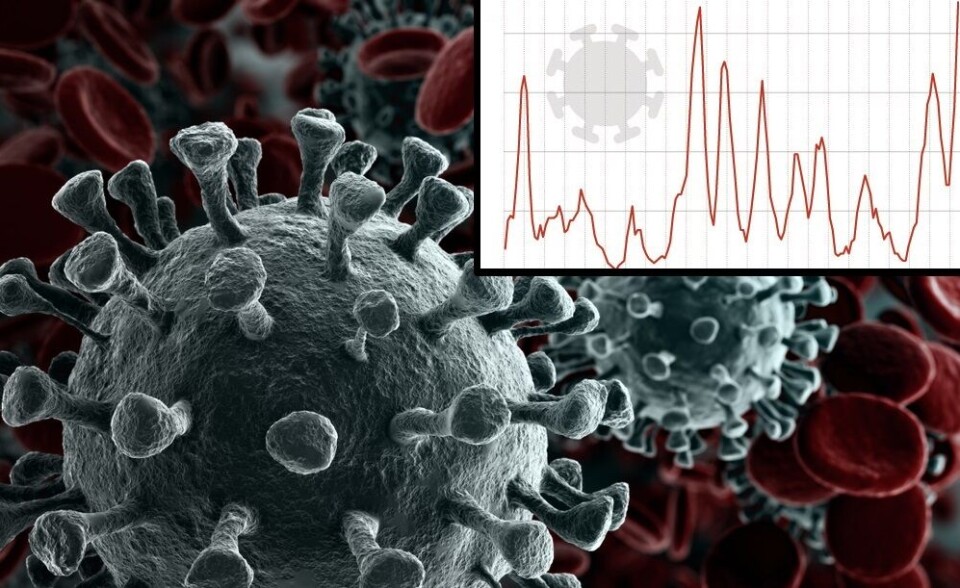-
French crisps brand gains global attention after Dua Lipa post
Singer posted photo of her shopping basket and the only food items were Brets crisps in braised chicken, honey mustard, and ‘Fromage du Jura’ flavours
-
Why supermarkets are urging shoppers to buy French leeks
Try our French classic leek vinaigrette recipe
-
New bill targets skiers under influence of alcohol or drugs
There are not currently any specific rules on skiing while under the influence
SEE: Covid cases in France at highest level for two years
The current peak follows four weeks of increasing cases

The number of diagnosed cases of Covid-19 is at its highest level in France for two years. We look at the data in a graph and the regions affected.
This year the cold weather has brought several respiratory illnesses at the same time: Covid, flu, bronchitis, bronchiolitis and colds.
Catching one of them does not give immunity to another, meaning that the most vulnerable people can catch several illnesses one after another.
Read more: Rise in respiratory infections continues in France
Between November 27 and December 2, SOS Médecins reported a 28% surge in Covid cases over the previous week, for a fourth consecutive week of increasing cases.
However hospitalisations remain relatively low, at 1,824 over the week.

The current peak in Covid-19 infections diagnosed by GPs is the highest since December 2021.
The rise in cases is particularly noticeable in the Grand Est region where:
- Haut-Rhin has 127.64 cases per 100,000 inhabitants
- Bas-Rhin has 145.78 cases per 100,000 inhabitants.
Read more: Covid France: How testing now works as cases rise again
Is a new variant behind the rise?
While there may be some statistical factors that skew this rise, such as people with Covid symptoms no longer using home tests, it could also be due to the new variant in circulation: JN.1.
However, according to Bruno Lina, professor of virology at Hospices Civils de Lyon, the JN.1 variant is no more dangerous than previous Omicron variants of Covid.
“We are seeing this lineage is progressively replacing all the others,” he told BFMTV. “Now it accounts for 50% of all infections in France.”
“However, the symptomatology of the Omicron variants remains the same: an upper respiratory tract infection, with more complicated cases affecting vulnerable and elderly people."
While the new JN.1 variant may be more able to evade immunity conferred by previous infections with different strains of Covid, a recent US study suggested that mRNA vaccine boosters are effective in creating “robust neutralising antibodies” against J.N1.
The mRNA vaccine boosters are currently in use in France as part of the government’s Covid booster campaign.
Read more:
Can I still get Covid booster in France if not part of a target group?
























